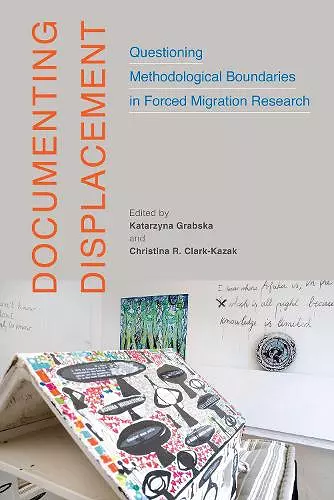Documenting Displacement
Questioning Methodological Boundaries in Forced Migration Research
Christina R Clark-Kazak editor Katarzyna Grabska editor
Format:Paperback
Publisher:McGill-Queen's University Press
Published:15th Feb '22
Should be back in stock very soon
This paperback is available in another edition too:
- Hardback£120.00(9780228008323)

A timely assessment of the ways in which knowledge is co-created in spaces of displacement, and how it is reproduced through narratives.
This project explores the ethics and methods of research in diverse forced migration contexts and proposes new ways of thinking about and documenting displacement. Contributors reflect honestly on both what has worked and what has not, providing useful points of discussion for future research by both established and emerging researchers.
Legal precarity, mobility, and the criminalization of migrants complicate the study of forced migration and exile. Traditional methodologies can obscure both the agency of displaced people and hierarchies of power between researchers and research participants. This project critically assesses the ways in which knowledge is co-created and reproduced through narratives in spaces of displacement, advancing a creative, collective, and interdisciplinary approach.
Documenting Displacement explores the ethics and methods of research in diverse forced migration contexts and proposes new ways of thinking about and documenting displacement. Each chapter delves into specific ethical and methodological challenges, with particular attention to unequal power relations in the co-creation of knowledge, questions about representation and ownership, and the adaptation of methodological approaches to contexts of mobility. Contributors reflect honestly on what has worked and what has not, providing useful points of discussion for future research by both established and emerging researchers.
Innovative in its use of arts-based methods, Documenting Displacement invites researchers to explore new avenues guided not only by the procedural ethics imposed by academic institutions, but also by a relational ethics that more fully considers the position of the researcher and the interests of those who have been displaced.
“Documenting Displacement advances and challenges our thinking and approach to conducting ethically sound research with people on the move. It effectively questions our more traditional research tools and approaches while providing guidance in how to explore alternatives.” Susan McGrath, York University
ISBN: 9780228008330
Dimensions: unknown
Weight: unknown
424 pages